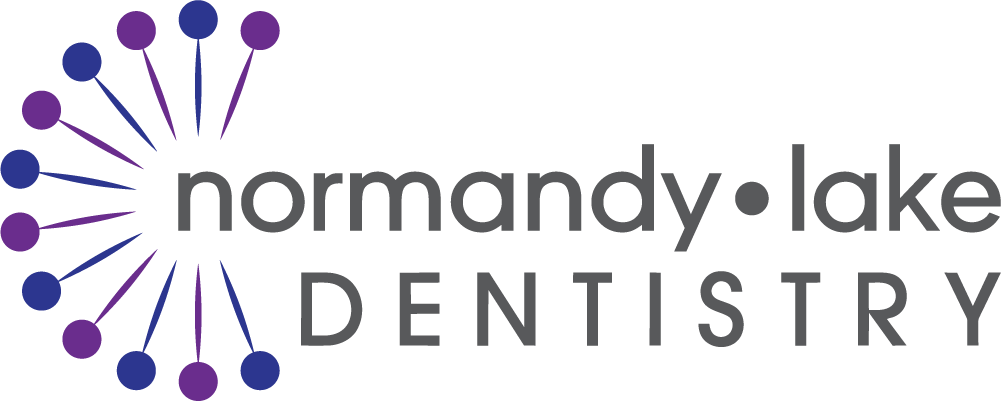The Truth About Regular Teeth Cleanings
When it comes to dental health, one of the most common pieces of advice is to get your teeth professionally cleaned every six months. But is this biannual routine really necessary for everyone, or is it just an overcautious recommendation? Let’s dive into why regular teeth cleanings are important and whether the six-month guideline is a must-follow rule for everyone.
Understanding the Importance of Regular Teeth Cleanings
Preventing Plaque and Tartar Buildup: Regular brushing and flossing at home are crucial, but even the most diligent oral hygiene routine can miss spots. Professional cleanings effectively remove plaque and tartar that regular brushing can’t, preventing potential gum disease and tooth decay.
Early Detection of Dental Issues: Regular visits allow your dentist to spot early signs of problems such as cavities, broken fillings, or more severe conditions like oral cancer. Early detection often means easier and less costly treatments.
Maintaining Overall Health: Poor oral health has been linked to various systemic health issues, including heart disease, stroke, and diabetes. Regular cleanings help maintain not just oral health but also contribute to overall wellbeing.
Is the Six-Month Rule Right for Everyone?
While the six-month rule is a good general guideline, it may not be necessary for everyone. The frequency of dental cleanings should be tailored to individual needs.
Low-Risk Patients: If you have good oral hygiene and a history free of cavities and gum disease, your dentist might suggest lengthening the interval between your cleanings.
High-Risk Patients: For those with a history of dental issues, such as gum disease, frequent cavities, or certain health conditions like diabetes, more frequent cleanings may be recommended. This could mean visits every three to four months.
Factors Influencing the Frequency of Dental Cleanings
- Personal Oral Hygiene: The better you maintain your oral hygiene, the less frequently you may need professional cleanings.
- Age and Lifestyle: Children, older adults, smokers, and those with a high-sugar diet might require more frequent dental visits.
- Medical History: Certain medical conditions, like heart disease or diabetes, increase the risk of oral health issues.
Making the Right Choice for Your Dental Health
The best way to determine how often you need a dental cleaning is to have a candid conversation with your dentist. They can assess your individual risk factors and suggest a personalized schedule.
Regular teeth cleanings are a cornerstone of preventive dental care. While the six-month guideline is a solid standard, remember that your specific needs might differ. Staying on top of your dental health with a schedule tailored to you is key to maintaining a healthy smile and overall wellbeing.
At Normandy Lake Dentistry, we’re committed to providing individualized care. We’re here to help you make the best decision for your oral health. Contact us at to schedule a consultation and learn more about the ideal dental care routine for you.
How Long Do Dental Veneers Last?
Dental Veneers in Jacksonville & Orange Park, FL
If you’re considering getting dental veneers or have had them in the past, it’s important to know how long they will last. Depending on the type of veneers you receive will play a part in how long your dental veneers will last. Proper care of your veneers will help ensure you get the most out of them.
Taking Care of Your Dental Veneers
Once your dental veneer procedure is done, your job is not over. Patients will need to follow proper oral health guidelines to make sure their dental veneers stay in good condition. If you want your dental veneers to last as long as possible, use the following list to stay on top of your oral health:
Daily Brushing + Flossing
You should already be brushing your teeth twice a day, but it’s always nice to have a reminder. Brushing your teeth should take around two minutes to ensure you are removing the plaque on your teeth. Patients should also be flossing their teeth once a day.
Limit Sweets
Limiting the number of sweets you consume is a good idea if you have dental veneers. You don’t have to completely stop eating sweets, but it’s important to be aware of how much you are consuming so you can be mindful of your oral health.
Regular Dental Checkups
Visiting our Florida office every 6 months is vital for making your veneers last as long as possible. During your visit, we will professionally clean your teeth to make sure they are free of any plaque and debris.
Composite vs Porcelain
The lifespan of your dental veneers depends on the type of dental veneers you received. Porcelain veneers can last anywhere from 10 to 12 years with the proper care. However, composite veneers usually only last between 4 and 8 years.
Some dental veneers can last up to 20 years if you take great care of them. Your dentist will know when the right time to replace your dental veneers is, so always ask your dentist if you have any questions about the timeline.
Know When It’s Time To Replace Them
Replacing your dental veneers is similar to the process of first getting them on. Your dentist will start by filing away and refining the bonding agent. Then, they will retake a mold of your teeth to ensure your new veneers fit just as well as your previous set. They will then create your new dental veneers and bond them back on your teeth.
Dental veneers, with the proper care, can last many years. You should always follow proper oral health guidelines to make sure your dental veneers last as long as possible. If you have been considering dental veneers, reach out to Normandy Lake Dentistry to get your questions answered.
Learn More About Dental Veneers at Normandy Lake DentistryWhat Is Dental Technology?
High-End Dentistry in Florida
When you visit the dentist, you may notice them using certain technologies. These dental technologies can include anything from x-ray machines to CEREC machines. All of the dental technologies we use in-office help streamline the process of visiting the dentist.
Types of Dental Technologies
Digital X-Rays
If you’ve ever visited a dentist before, you most likely have gotten x-rays taken. Digital x-rays are standard practice at most dental offices. These digital x-rays save time and are safe for any patient.
Cone Beam Computed Tomography (CBCT)
CBCT scanning allows our team to create images of your teeth, face and neck with just one scan. These images are high-quality and help us gather detailed information to best diagnose every patient. The CBCT machine rotates once around your head while you stand or sit. It is a quick, simple and painless process!
CEREC
CEREC stands for Chairside Economical Restorations of Esthetic Ceramic. CEREC creates a state-of-the-art way of reconstructing tooth restorations. For patients who are in need of crowns, CEREC makes it possible to walk out of the office with a new tooth in just one visit! This dental technology has revolutionized ceramic restorations so there is no waiting period for preparing the restoration and receiving the final product.
Intraoral Camera
Intraoral cameras give our team a detailed view of your mouth in pictures in videos. This dental technology is useful for putting specific problem areas on the screen so we can see in greater detail.
What Dental Technologies are Offered at Normandy Lake Dentistry?
At Normandy Lake Dentistry, we offer dental technologies to streamline our dental process as much as possible. We use the following technologies in our practice:
- Digital X-Rays
- Panorama X-Rays
- Intraoral Camera
- CEREC
- Isolite Comfort System
- DentalVibe
If you have any questions about dental technology, or what we use at our practice, please give us a call at (904) 783-1633 for the Normandy office, or 904-293-2520 for the Lakewood office, or (904) 278-9011 for the Orange Park office.
Is Teeth Whitening Safe?
Teeth Whitening Procedures at Normandy Lake Dentistry
Teeth Whitening has been around for decades and millions of people use whitening products – including plenty of dentists. According to dental professionals, they haven’t seen an increase in problems like cavity risk or tooth fractures after teeth whitening procedures. Normandy Lake Dentistry works to provide safe teeth whitening services for our patients.
Side Effects of Teeth Whitening
- Teeth Sensitivity: Your teeth may become more sensitive after getting them whitened. You may experience this after your first or second treatment, and it can diminish with time. Ask one of our doctors if they can recommend products for treating sensitivity at your next appointment.
- Irritated Gums: You may also experience gingival irritation, which happens when your gums become irritated. If the whitening products touch your gums, then they may become irritated, but Normandy Lake Dentistry takes precautions to eliminate this risk.
Benefits of Teeth Whitening
- Safety: The American Dental Association (ADA) has stated that hydrogen peroxide whiteners are safe and effective. At Normandy Lake Dentistry, we care for our patients like they are our family. The side effects of teeth whitening stated above usually only occur with at-home teeth whitening products. At our office, we work to minimize the side effects as much as possible.
- Quick Process: Our whitening process is quick and effective. You can walk away with whitened teeth in just one session rather than waiting months for at-home products to take into effect.
- No Recurring Appointments: You won’t have to keep coming into our office for additional appointments because whitening your teeth too frequently can actually damage your teeth. With just a couple of sessions of professional whitening, you can achieve the bright, white smile that you desire.
If you are worried about your upcoming teeth whitening procedure or worried about an at-home product you are using, you can always ask one of our doctors if the product is safe. Normandy Lake Dentistry offers professional teeth whitening that is safe and effective. If you would like to schedule a teeth whitening appointment, use the button below to schedule online, or learn more about teeth whitening at our office.
Schedule Your Teeth Whitening AppointmentLearn More About Teeth Whitening at Normandy Lake Dentistry
What Happens if Gum Disease is Left Untreated?
If left unchecked, wood rot can cause enough damage to collapse a building, and similar to wood rot, gum infection, when left untreated, will eat away the gum and bone that support your teeth causing your teeth to become loose and fall out. Gum disease is an infection of the gums that has many different stages. Untreated gum disease at any stage is dangerous for your teeth’s overall health.
You may be surprised to learn that in most cases, gum infection silently advances without any pain or real discomfort. Oftentimes, the only symptoms people notice are bad breath and bleeding when brushing one’s teeth.
By the time you notice your teeth are loose, the disease has already taken its toll. The supporting bone has disappeared and your teeth need to be removed.
And just like wood rot, the more advanced the disease, the more time and money it will take to treat the infection and repair the damage. What may have started as needing only a special cleaning and some antibiotics can unexpectedly grow into more complex treatments, such as full mouth surgery or multiple tooth extractions. In addition, research has found that the bacteria that cause gum infection can enter your body through the gums and contribute to the formation of clots and blockages resulting in stroke and heart disease.
So no matter what stage your gum infection might be, please seek out a dentist to help you get it under control. Fortunately, there are multiple therapies that can help manage gum disease. At Normandy Lake Dentistry, we offer gum disease treatment in Jacksonville & Orange Park, FL. Contact either of our locations today to set up an appointment.
Straightening Teeth Without Braces
Clear aligners have revolutionized orthodontic therapy, ever since Invisalign® first introduced them. What once required a mouth full of metal braces to move teeth, we can now often achieve the same results with removable clear plastic trays that are virtually invisible. The technology has continued to advance and grow to offer patients even more options, convenience, and flexibility. Let’s explore the option to straighten teeth without braces.
What’s the difference between Invisalign® and clear aligners?
Invisalign® is a brand of clear aligners, just like Xerox is a brand of copy machine. In the end, performance between different clear aligner brands is comparable. Today, there are at least a dozen different companies that design and manufacture clear aligners as well as the option for some dentists to even 3D print their own aligners for their patients.
What’s the difference between clear aligner therapy with a dentist versus clear aligner products such as Smile Direct Club?
Smile Direct, though convenient, can only treat very mild to moderate cases and there is no dentist to regularly check or make necessary adjustments to ensure your teeth are indeed moving in the right direction.
If you choose to undergo clear aligner therapy with a dentist, the doctor personally examines you at every visit and evaluates the progress. In a majority of cases, the doctor will make necessary key adjustments during your regular visits to ensure correct movement and a superior clinical outcome. To save costs, Smile Direct forgoes doctor supervision and intervention.
We all like saving money, but when it comes to health care, it may not always be good to scrimp. Clear aligner therapy is a serious medical/dental procedure where irreversible change can take place. Ask yourself, do you want the best care or the cheapest care? Ultimately, the choice is yours.
What can clear aligners fix?
The good news is most cases can be treated with clear aligner therapy with great success. So whether you’re suffering from overcrowding, crooked teeth, or spacing, you are probably in luck. Only a small percentage of cases where the amount or type of tooth movement required needs traditional braces. Please consult your dentist to see if you would be a good candidate for clear aligners.
What is the con to clear aligners?
The biggest shortfall of clear aligners would be in the area of compliance. In other words, since they are freely removable, ensuring enough wear time falls completely on the patient. Clear aligners generally require a minimum of 22 hours of wear time per day. Patients need to be responsible when it comes to wearing their clear aligners in order to lead to success.
If you or a family member have any further questions regarding clear aligners, please feel free to contact our team at Normandy Lake Dentistry!
Contact Normandy Lake Dentistry












